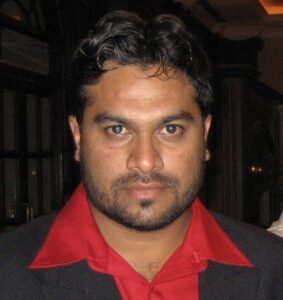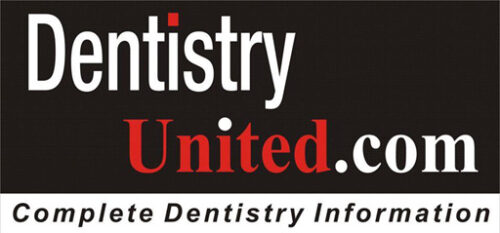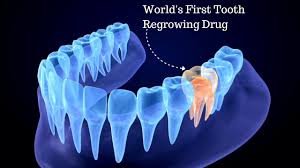By Dr. Syed Nabeel, BDS, D.Orth, MFD RCSI, MFDS RCPSG
The field of dentistry stands at the threshold of a groundbreaking transformation. In October 2024, researchers at Kyoto University Hospital initiated the world’s first human clinical trial for a tooth-regenerating drug, marking a significant milestone in regenerative dentistry. Built on the foundation of successful animal studies, this innovation has the potential to revolutionize the treatment of tooth loss, offering a biological alternative to conventional prosthetics like dentures and implants. For dental professionals, this development is a call to action—to understand its implications, prepare for its integration, and advocate for its accessibility.
The Science Behind Tooth Regeneration
Developed by Toregem Biopharma, a Kyoto University spinoff, the drug targets the protein USAG-1 (Uterine Sensitization-Associated Gene-1), which suppresses tooth growth in mammals. By inhibiting USAG-1 with a monoclonal antibody, the drug activates dormant tooth buds—latent structures beneath the gums that typically remain inactive after the formation of primary and permanent teeth. This approach harnesses the body’s regenerative capacity, stimulating the growth of a “third set” of biologically compatible teeth that integrate naturally into the jawbone.
Preclinical studies in animals have yielded promising results. In mice and ferrets, whose dental anatomy mirrors that of humans, the drug successfully induced the growth of functional teeth with minimal side effects. These findings, first published in Science Advances in 2021, paved the way for human trials. The ongoing phase, launched in September 2024 at Kyoto University and Kitano Hospital, involves 30 adult males aged 30–64, each missing at least one molar. Administered intravenously over 11 months, the trial aims to confirm the drug’s safety and efficacy in humans. If successful, the next phase will focus on children aged 2–7 with congenital anodontia, a condition affecting roughly 1% of the population, where some or all permanent teeth fail to develop.
Implications for Dental Practice
For dentists, tooth regeneration presents both opportunities and challenges. Unlike implants, which involve invasive surgery and risks like peri-implantitis, or fillings, which compromise tooth structure over time, regenerated teeth offer durability, self-repair, and seamless jaw integration. This could significantly enhance patient outcomes, particularly for those with tooth loss due to trauma, caries, or periodontal disease, as well as those with congenital dental anomalies.
However, adopting regenerative therapies will require adaptation. Dentists may need training to administer or monitor these treatments, as the drug’s delivery—whether through injection or another method—could become part of routine care. Additionally, integrating regenerative dentistry into practice will demand collaboration with researchers and biotech companies to establish standardized protocols and address ethical considerations, especially concerning stem cell manipulation.
Economic and Accessibility Concerns
While the scientific potential is immense, economic considerations pose significant questions. Dental implants and prosthetics are already expensive, often inaccessible to many patients. The development of a tooth-regenerating drug, reliant on advanced biotechnology, may initially carry a high cost. As highlighted in recent dental community discussions, affordability will determine whether this innovation becomes widely accessible or remains limited to a privileged few.
The dental industry may also face disruption. Widespread use of tooth regeneration could decrease demand for traditional restorative procedures, impacting manufacturers of implants and prosthetic materials. Dentists must advocate for policies that ensure equitable access, potentially through healthcare partnerships or subsidies for regenerative treatments. Engaging with professional organizations to influence regulatory frameworks will be crucial to making this breakthrough inclusive.
Safety and Ethical Considerations
Safety is a top priority. Although animal trials reported no major side effects, human physiology is more complex, necessitating long-term studies to evaluate risks such as unintended cellular growth or systemic effects from USAG-1 inhibition. The trial’s safety-focused design, starting with a small cohort and rigorous monitoring, is a cautious approach. Dentists must remain informed as data emerges, critically assessing the drug’s risk-benefit profile.
Ethical concerns also warrant attention. While antibody-based therapies are less controversial than embryonic stem cell methods, they require careful oversight to prevent misuse or over-commercialization. Moreover, not all patients may respond to the treatment, as some lack viable tooth buds due to genetic or developmental factors. Dentists will need to manage patient expectations and ensure informed consent, particularly as public excitement—driven by media coverage—may outpace the therapy’s readiness.
The Future of Dentistry
The tooth regeneration trial aligns with broader advancements in regenerative medicine, where the focus is on restoring rather than replacing damaged tissues. Innovations like stem cell-based organoids that secrete enamel-forming proteins and lab-grown teeth signal a future where dentistry prioritizes biological solutions over mechanical interventions. For dental professionals, this shift offers an opportunity to lead in patient-centered care, emphasizing prevention, regeneration, and minimally invasive approaches.
I urge my colleagues to engage proactively with this development. Attend conferences, pursue continuing education in regenerative dentistry, and contribute to research that bridges laboratory breakthroughs and clinical practice. By doing so, we can ensure that tooth regeneration becomes a practical reality for our patients, not just a scientific milestone.
The Near Future Ahead Of Us
The launch of human trials for a tooth-regenerating drug is a defining moment in dental history. While challenges—affordability, safety, and industry adaptation—remain, the potential to regrow natural teeth could transform millions of lives. As dentists, we have a duty to stay informed, advocate for accessibility, and prepare for a future where regeneration becomes the cornerstone of dental care. The path forward is just beginning, but its promise is nothing short of revolutionary.
References:
- “Tooth Regrowth Drug in Human Trials | Japan’s Dental Breakthrough.” The Dentist West Midlands, May 1, 2025.
- “Japanese Researchers Test Pioneering Drug to Regrow Teeth.” The Japan Times, December 13, 2024. https://mainichi.jp/english/articles/20240503/p2a/00m/0sc/012000c
- “A Breakthrough in Tooth Regeneration – Human Trials Begin!” BioPatrika, January 31, 2025.
- Takahashi, K., et al. “Recovery of Tooth Formation in Double KO Mice with Congenital Tooth Agenesis and Supernumerary Teeth.” Science Advances, 2021.

Dr. Syed Nabeel, BDS, D.Orth, MFD RCS (Ireland), MFDS RCPS (Glasgow)
Committed to Orthodontics, Neuromuscular Dentistry & Digital Innovation
Dr. Syed Nabeel is a dentist with 25 years of experience, passionate about patient care, education, and the evolving role of technology in dentistry. He leads Smile Maker Clinics Pvt Ltd www.smilemaker.in with a focus on evidence-based care, TMJ treatment, smile design, and orthodontics.
He founded DentistryUnited.com in 2004 to connect dental professionals globally and launched Dental Follicle – The E-Journal of Dentistry (ISSN 2230-9489) to support academic exchange.
His interests include:
-
Neuromuscular Dentistry & TMJ Care
-
Orthodontics – Braces, Aligners & Digital Planning
-
AI & Digital Workflows in Dentistry
A lifelong learner, Dr. Nabeel also mentors young dentists and speaks on clinical topics, digital dentistry, and practice management. Outside the clinic, he enjoys photography, gardening, and travel.
Grateful to his mentors, peers, and patients, he believes there’s always more to learn and share.
dentistryunited@gmail.com
www.DentistryUnited.com

